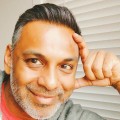FOSS outside of corporations
| Sun 04 Aug 9:45 a.m.–10:30 a.m.
Presented by
-
 Karen M. Sandler is an attorney and the executive director of Software Freedom Conservancy, a 501c3 nonprofit organization focused on ethical technology. As a patient deeply concerned with the technology in her own body, Karen is known as a cyborg lawyer for her advocacy for free software as a life-or-death issue, particularly in relation to the software on medical devices. She co-organizes Outreachy, the award-winning outreach program for people who face under-representation, systemic bias, or discrimination in tech. She is an adjunct Lecturer-In-Law of Columbia Law School and a visiting scholar at University of California Santa Cruz.
Prior to joining Software Freedom Conservancy, Karen was the executive director of the GNOME Foundation. Before that, she was the general counsel of the Software Freedom Law Center. She began her career as a lawyer at Clifford Chance and Gibson, Dunn & Crutcher LLP.
Karen received her law degree from Columbia Law School where she was a James Kent Scholar and co-founder of the Columbia Science and Technology Law Review. She also holds a bachelor of science in engineering from The Cooper Union for the Advancement of Science and Art.
Sandler has won awards for her work on behalf of software freedom, including the O’Reilly Open Source Award in 2011. She received an honorary doctorate from KU Leuven in 2023.
Karen M. Sandler is an attorney and the executive director of Software Freedom Conservancy, a 501c3 nonprofit organization focused on ethical technology. As a patient deeply concerned with the technology in her own body, Karen is known as a cyborg lawyer for her advocacy for free software as a life-or-death issue, particularly in relation to the software on medical devices. She co-organizes Outreachy, the award-winning outreach program for people who face under-representation, systemic bias, or discrimination in tech. She is an adjunct Lecturer-In-Law of Columbia Law School and a visiting scholar at University of California Santa Cruz.
Prior to joining Software Freedom Conservancy, Karen was the executive director of the GNOME Foundation. Before that, she was the general counsel of the Software Freedom Law Center. She began her career as a lawyer at Clifford Chance and Gibson, Dunn & Crutcher LLP.
Karen received her law degree from Columbia Law School where she was a James Kent Scholar and co-founder of the Columbia Science and Technology Law Review. She also holds a bachelor of science in engineering from The Cooper Union for the Advancement of Science and Art.
Sandler has won awards for her work on behalf of software freedom, including the O’Reilly Open Source Award in 2011. She received an honorary doctorate from KU Leuven in 2023.
-

John Sullivan
https://alliterativeadvising.com
John Sullivan is an independent free software activist and consultant
(Alliterative Advising LLC), with specialties in communication,
community organizing, licensing, fundraising, strategic planning, and
nonprofit governance. He is a Debian Developer, and member of its
keyring team. He is also a board member of F-Droid, and currently its
vice chair. Previously, he worked for the Free Software Foundation for
over nineteen years, including two as its union steward and eleven as
its executive director. Prior to the FSF, John worked as a speech and
debate instructor for Harvard, University of Kentucky, and Michigan
State University, coaching undergraduates and high school students on
public speaking, research, and critical thinking. He holds an MFA in
Writing and Poetics from the Jack Kerouac School of Disembodied
Poetics (which is real) at Naropa University, and a BA in Philosophy
from Michigan State, but he has been spending too much time with
computers and online communities since running a 1990s BBS on his
Commodore 64. Also he co-owns a pen store.
-

-

-

Sriram Ramkrishna
@sramkrishna
https://linkedin.com/in/sriram-ramkrishna
Sri is a Free and Open Source advocate for over 25 years. Sri started working on open source software when he was 25 contributing to the GNOME project in 1997. 15 years later, he was given the opportunity to work on open source professionally at Intel Corporation in 2012. While his career has gone through many iterations his contributions to the GNOME project has been consistent - building community around projects and engaging with community. His passion today is to help build the Linux Application Ecosystem through initiatives like the Linux App Summit. Professionally, Sri is the senior community manager for oneAPI and the lead coordinator of Intel's Software Innovator Program.
John Sullivan
https://alliterativeadvising.com
Sriram Ramkrishna
@sramkrishna
https://linkedin.com/in/sriram-ramkrishna
Abstract
As free software has taken over the world, we've seen large contributions from corporations. This large adoption has led to more contributors (code, community and financial) than we ever dreamed. Unfortunately what this has caused is somewhat of a dependence on corporate funding and place making for our communities. Now we are faced with the question of now that free and open source software has taken over the world, how do we continue to build and use it outside of corporate contexts. Whether governmental, non-profit, education, or elsewhere, how do we make sure there is a digital future that is not reliant upon financing from corporations
As free software has taken over the world, we've seen large contributions from corporations. This large adoption has led to more contributors (code, community and financial) than we ever dreamed. Unfortunately what this has caused is somewhat of a dependence on corporate funding and place making for our communities. Now we are faced with the question of now that free and open source software has taken over the world, how do we continue to build and use it outside of corporate contexts. Whether governmental, non-profit, education, or elsewhere, how do we make sure there is a digital future that is not reliant upon financing from corporations